- Home
- Andy McNab
Whatever It Takes
Whatever It Takes Read online
Andy McNab
* * *
WHATEVER IT TAKES
Contents
PROLOGUE: 2016 Chapter 1
Chapter 2
Chapter 3
Chapter 4
PART ONE: 2019 Chapter 1
Chapter 2
PART TWO: Eight months earlier Chapter 3
Chapter 4
Chapter 5
Chapter 6
Chapter 7
Chapter 8
Chapter 9
Chapter 10
Chapter 11
Chapter 12
Chapter 13
PART THREE Chapter 14
Chapter 15
Chapter 16
Chapter 17
Chapter 18
Chapter 19
PART FOUR Chapter 20
Chapter 21
Chapter 22
Chapter 23
Chapter 24
Chapter 25
Chapter 26
Chapter 27
Chapter 28
Chapter 29
Chapter 30
PART FIVE Chapter 31
Chapter 32
Chapter 33
PART SIX Chapter 34
Chapter 35
Chapter 36
Chapter 37
Chapter 38
Chapter 39
Chapter 40
Chapter 41
Chapter 42
Chapter 43
Chapter 44
Chapter 45
Chapter 46
Chapter 47
PART SEVEN Chapter 48
Chapter 49
Chapter 50
Chapter 51
Chapter 52
Chapter 53
Chapter 54
Chapter 55
Chapter 56
Chapter 57
Chapter 58
Chapter 59
Chapter 60
Chapter 61
Chapter 62
Chapter 63
PART EIGHT Chapter 64
Chapter 65
Chapter 66
Chapter 67
Chapter 68
Chapter 69
Chapter 70
About the Author
From the day he was found in a carrier bag on the steps of Guy’s Hospital in London, Andy McNab has led an extraordinary life.
As a teenage delinquent, Andy McNab kicked against society. As a young soldier, he waged war against the IRA in the streets and fields of South Armagh. As a member of 22 SAS, he was at the centre of covert operations for nine years, on five continents. During the Gulf War he commanded Bravo Two Zero, a patrol that, in the words of his commanding officer, ‘will remain in regimental history for ever’. Awarded both the Distinguished Conduct Medal (DCM) and Military Medal (MM) during his military career, McNab was the British Army’s most highly decorated serving soldier when he finally left the SAS.
Since then Andy McNab has become one of the world’s best-selling writers, drawing on his insider knowledge and experience. As well as several non-fiction bestsellers – including Bravo Two Zero, the biggest selling British work of military history – he is the author of the best-selling Nick Stone and Tom Buckingham thrillers. He has also written a number of books for children.
Besides his writing work, he lectures to security and intelligence agencies in both the USA and UK, and works in the film industry advising Hollywood on everything from covert procedure to training civilian actors to act like soldiers. He continues to be a spokesperson and fundraiser for both military and literacy charities.
Also by Andy McNab
Novels featuring Nick Stone
REMOTE CONTROL
CRISIS FOUR
FIREWALL
LAST LIGHT
LIBERATION DAY
DARK WINTER
DEEP BLACK
AGGRESSOR
RECOIL
CROSSFIRE
BRUTE FORCE
EXIT WOUND
ZERO HOUR
DEAD CENTRE
SILENCER
FOR VALOUR
DETONATOR
COLD BLOOD
LINE OF FIRE
Featuring Tom Buckingham
RED NOTICE
FORTRESS
STATE OF EMERGENCY
Andy McNab with Kym Jordan
WAR TORN
BATTLE LINES
Quick Reads
THE GREY MAN
LAST NIGHT ANOTHER SOLDIER
TODAY EVERYTHING CHANGES
ON THE ROCK
Non-fiction
BRAVO TWO ZERO
IMMEDIATE ACTION
SEVEN TROOP
SPOKEN FROM THE FRONT
THE GOOD PSYCHOPATH’S GUIDE TO SUCCESS
(with Kevin Dutton)
SORTED!: THE GOOD PSYCHOPATH’S GUIDE TO
BOSSING YOUR LIFE (with Kevin Dutton)
For more information on Andy McNab and his books, see his website at www.andymcnab.co.uk
‘For what can men do when so many have grown lawless?’
Alan Paton, Cry, the Beloved Country
Prologue
* * *
2016
1
Queenstown, New Zealand
Sunday, 27 November 2016
It’s amazing the view just a few million dollars will buy you. Far in the distance, the other side of this never-ending wall of glass and the breathtakingly turquoise infinity pool, which you could swear merged with the lake sparkling in the brilliant sunshine, mountain peaks jutted majestically into the clear blue sky. Speedboats carved their way across the water. Paragliders floated through the air. Locals and tourists alike were having fun on this beautiful Sunday morning, and if I hadn’t been up to what I was, I would probably have joined them.
Instead, I turned my back, picked up my bag from the kitchen island, and grabbed a large shiny red apple from a fruit display that looked more like a Cézanne painting than a bowl of stuff to eat. I carried on into the blindingly white room, then deeper into the house. It felt so good to have the place to myself. No family, no gardeners, no cleaners, no cooks, just me, and a few thousand square feet of billionaire’s mansion. I’d been waiting weeks to get time to myself.
I passed through one of the large lounge areas and wasn’t too happy about the white leather sofas but, considering I’d had no input whatsoever into the décor, I didn’t suppose I could complain.
Still munching, I took the wooden staircase down to the basement and pushed through a heavy, bomb-proof door. Everything was just as plush down here, but without the view and the natural light. Clusters of bright seasonal-affective-disorder lights compensated for that by giving the illusion of sunlight, and the high-end air-con did its best to convince you that a window was open, letting in a gentle breeze.
I walked into the den – well, I say den, technically it was the family panic room, dug into the hillside and under the house, and about the size of an Olympic swimming pool. And panic room? It was more like an underground panic complex, complete with bedrooms, a kitchen, food-storage areas, a clean-water facility – everything you’d need to lead a very plush and comfortable existence while, just a few metres of reinforced concrete above you, Armageddon raged. It was designed for the family to live down there for up to a year. Time enough for the world above to finish burning and a new order to install itself.
This first bit had been converted into office space, and a dozen monitors on the walls broadcast round-the-world stock markets in real time, green gains and red losses, updates on multinational trade a constant flow of numbers tumbling down the flat screens, or running horizontally beneath CNN presenters, like digital ticker-tape.
I didn’t stop to take in any of the information. I didn’t know how to and,
anyway, I wasn’t down there to see how Marcus Dalladine made even more money.
I was down there to relieve him of some of it.
I swallowed the last of the apple, including the core, so there wouldn’t be anything left behind by accident that could eventually find its way back to me. Dalladine was the American hedge-fund guy who’d moved his family there permanently – not for the great weather and views, but for sheer safety. Up till 2008, he’d been making more money than the average third-tier country, and then the financial crisis had hit. After that, he’d made even more as he preyed on people’s desperation and fear. He’d ripped off his clients and their pension funds, and walked away from the carnage scot-free by simply telling the world he was suffering like the rest of us. Suffering so much that he’d joined the wolf-pack down here in New Zealand.
So, where was the harm in repatriating just a little of it to its rightful owners?
It wasn’t his investors’ rage and despair that he’d run down here to avoid. That was just small-fry compared to something he and many others who’d fled to New Zealand considered much worse.
Anyway, that was his problem. Mine lay directly under the desk in the middle of his trading room, covered with an ornamental rug that lay, like an island of swirling colours, in a sea of grey Italian slate. The desk was dark wood, straight-legged, heavy and substantial. There were castors on each of the legs that were going to make it ever so easy to move away from the rug.
A pretty basic mistake that signals you’re trying to hide something underneath.
I pulled the desk aside, very conscious of keeping all the family pictures, the paperwork, the pens and pencils from moving or being displaced. Obviously, it would have been easier if I’d had a mobile with me to take a couple of pictures, the before to compare with the after, but bringing one in was dangerous. The dangers far outweighed the advantages. I needed to be careful. I was careful.
I was always careful.
With the rug now free of the desk, I rolled it up to expose a brushed-steel cabinet set flush with the floor. It was rectangular and embedded in the concrete – just as I’d known it would be.
2
This wasn’t my first visit to the Dalladine household. I had called in twice before, a year ago, while the house was being constructed. I had found out all the details possible from the local authority, all the consents and specs, so I knew what was being built – but, more importantly, how and with what. I knew where all the electrical and security systems were going to be installed, all the plumbing, everything down to the type of locks that would be used to keep out intruders.
My other visits were to confirm that the specs were being adhered to correctly, and no one on-site had batted an eyelid. Construction is a bit of an international brotherhood, and it’s amazing how helpful people are when you say you’re in the business, you’re on holiday, you were just passing by, and you couldn’t resist seeing how things were done this side of the world. It all paid off. Once the house was finished, I could come back and access it on a day of my choosing, and take whatever I wanted, just like today. It had made me very happy for months that I knew what was going to happen and the owner didn’t.
I had realized years ago that what I did to make money, these days, was very much like my old business. In what now felt like a lifetime ago, I had been a quantity surveyor. Say the word ‘surveyor’ and most people think you’re the guy a building society sends round to check a house you’re buying, and who doesn’t even spend enough time to look in the roof-space before approving or turning down the mortgage.
Back then, I used to smile and say, ‘Yep, something like that.’ I never had the time or the inclination to explain that my job had nothing to do with mortgage applications. A quantity surveyor ensures that construction costs are kept within budget, so he or she has to supervise the entire end-to-end process of a construction development. To be able to do that, he or she needs to understand all the relevant building regulations for a project and everything about construction down to the last nut and bolt, from drainage to electrical systems to insulation. I had overseen the building of everything from a home extension to a multimillion-pound tower block. I knew my stuff. I had a practical, logical mind, a methodical way of thinking, and was pretty creative when it came to problem-solving. I’d gone to university, studied for years to qualify in my old career, and I didn’t see why this new one was any different. Any gaps I had, like dealing with the pressure of being caught, were filled by my training and experience in the reserves as a captain in the Royal Engineers, which had included a tour in Afghanistan.
The cabinet was locked, which I took as a good sign. Until now, all I’d known was that the concrete well existed, and I’d been wondering why it was needed.
For sure, it would be to keep stuff safe, and accessible to the family if it was time to use the panic room. But what was in it?
There were no drawers in the desk, so I checked the top: maybe a key in a jar, or under the lamp.
I tapped the cabinet door, and this was no safe. Maybe just a few millimetres of steel that could easily be cut.
Digging into my bag, I pulled out a battery-powered disc cutter. It only gave about fifteen minutes of cutting time but was small enough to carry unnoticed in a daysack, and that would be more than enough time to cut around the one key well that secured the door.
It never mattered to me that I left carnage, as long as I could cover it up long enough to give me time to make distance. In fact, I liked it even more: I wanted people like Dalladine to know that someone had come into their house, violated their personal zone, then stolen from it.
I put on my safety glasses, pulled on my yellow washing-up gloves for a better feel as I gripped the cutter, and started to cut in three straight lines around the lock.
Sparks flew and the disc screamed. This wouldn’t take long.
This was my fifth robbery in the past five years. I’d never had much problem getting in, getting what I wanted and getting out. In other words: getting away with it. The hardest task was deciding what and what not to take. For that, I needed to work out the value of things, which was when it paid off to have been a student and therefore addicted to daytime television. Three years of Bargain Hunt, Flog It! and Antiques Roadshow had set me up for life. This life, anyway.
Sometimes I’d look at something nice and shiny, but decide against taking it. I wasn’t stealing the Crown Jewels. All those diamonds and rubies – I wouldn’t be able to sell them. It’s all well and good stealing a diamond the size of a golfball, but where do you offload something like that? I didn’t even want to find out. It would mean people being involved in my business, would increase my chance of being found out. No, I just went with things that could be moved on easily or used, and that mainly meant cash and gold. Besides, I wasn’t greedy: it was all about taking what I was owed.
Sometimes I called myself lucky, but was I really? After five years, I still wasn’t sure what luck was. My family had spent their lives trying to do the right thing, then gone through hell for it. Luck never entered their lives when it was needed. Doing the right thing doesn’t bring luck. Luck is just opportunity and timing. Luck is about being able to identify the opportunity and the right time to take advantage of it. Don’t try to do the right thing: just act when opportunity and timing align.
It took no more than ten minutes before I could stamp down the last of the remaining steel around the lock for the door to bounce back on its hinges. I always packed up before opening, just in case anything was left behind. Once it was used it was secured, just like a pocket with a button: if there was one, it should be used.
As I opened the cabinet, I saw what tended to be kept in this sort of container in a panic room. Some cash and valuable minerals of some kind, and assorted paperwork that, for all I knew, could be more valuable than anything else in there. But that would mean understanding what I was looking at, then the effort to find people to profit from it. Inside this particular cabinet were just two i
tems I wanted.
The first that caught my eye was the cash: US$100 bills, still bank-banded in $5000 lots. I didn’t bother counting how many, but there were more than ten, for sure. Then there was the gold, a bandolier of twenty one-ounce gold buffalo coins, the US version of sovereigns, and Krugerrands. I was a big fan of gold coins. They were easier to sell than ingots: ordinary people traded them, and collectors bought them.
With my daysack full, I kept control of myself and slowly replaced the rug and desk. Now wasn’t the time to rush things just because I’d got what I’d come for. This part of the job was just as important, like descending Everest is every bit as important as climbing it. People nearly always die on the way down, not the way up.
I ensured the legs pushed down on the dents they had already made in the pile, then gently brushed back the grain on the wool that had been made by the castors’ movement so all looked normal.
Happy, I moved back from the desk and checked the area for the last time. Did anything look different from thirty minutes ago? Did I have everything I’d come with, and, of course, everything I’d be leaving with? Was everything secured in the daysack, nothing to fall on the kitchen floor on the way out?
It took only a few seconds, but it meant I could sleep that night without worrying what I might have cocked up.
All was good, so I headed back upstairs. I wasn’t excited about what was in my bag. It wasn’t really about the steal: what I got satisfaction from was that Dalladine would eventually pull back the rug and discover his stuff had been stolen. He wouldn’t be worried about its value – that would be pocket change for him – but what would eat away at him and really, really hurt was the thought that, quite simply, someone had intruded on his world. A world that he had spent a lot of money and effort to keep the hoi polloi away from.

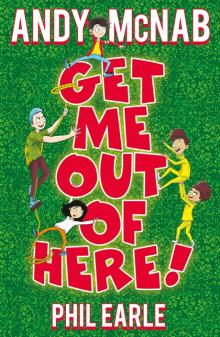 Get Me Out of Here!
Get Me Out of Here!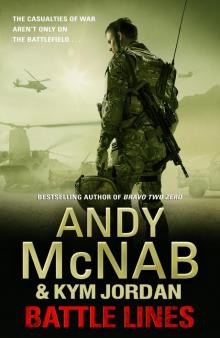 Battle Lines
Battle Lines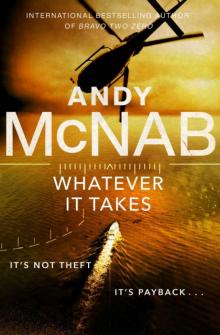 Whatever It Takes
Whatever It Takes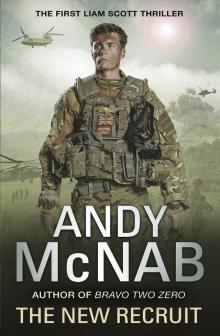 The New Recruit
The New Recruit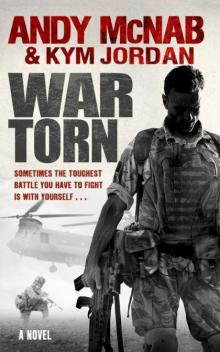 War Torn
War Torn Brute Force
Brute Force Crossfire
Crossfire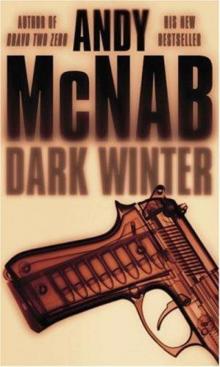 Dark Winter ns-6
Dark Winter ns-6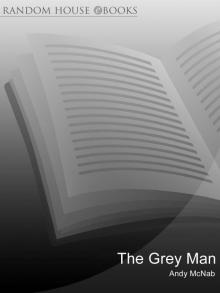 The Grey Man
The Grey Man Spoken from the Front
Spoken from the Front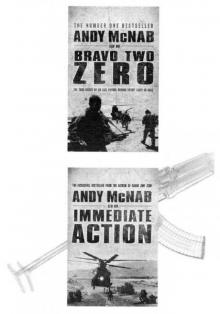 Meltdown
Meltdown Recoil
Recoil Nick Stone 1 - Remote Control.
Nick Stone 1 - Remote Control.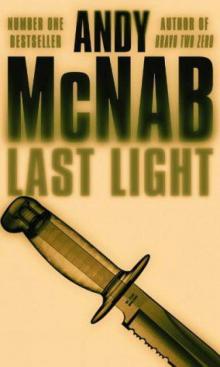 Last Light ns-4
Last Light ns-4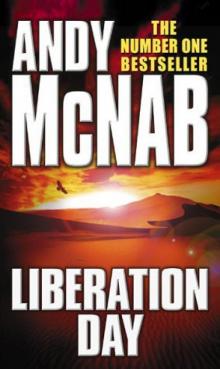 Liberation day
Liberation day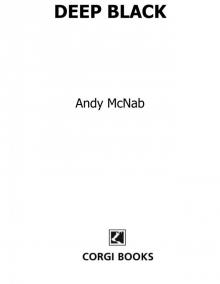 Deep Black
Deep Black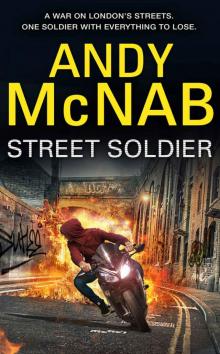 Street Soldier
Street Soldier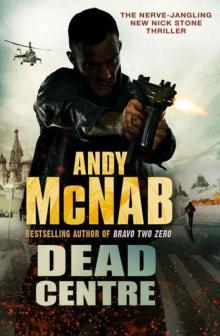 Dead Centre ns-14
Dead Centre ns-14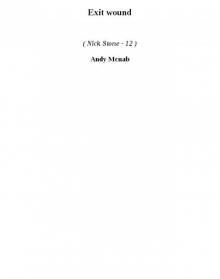 Exit wound ns-12
Exit wound ns-12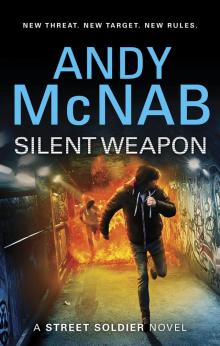 Silent Weapon
Silent Weapon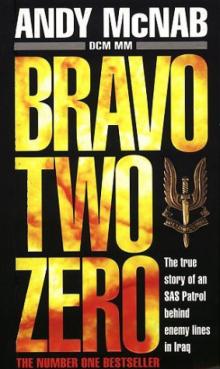 Bravo two zero
Bravo two zero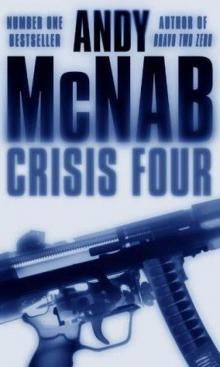 Crisis Four ns-2
Crisis Four ns-2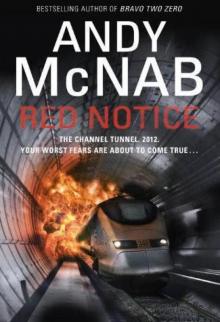 Red Notice
Red Notice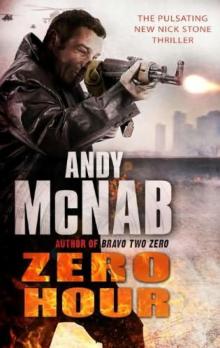 NS13 Zero Hour
NS13 Zero Hour Firewall
Firewall Last Light
Last Light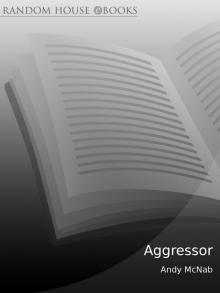 Aggressor
Aggressor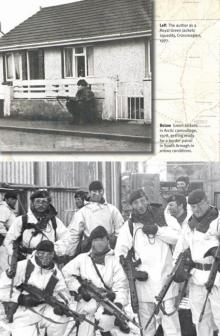 Seven Troop
Seven Troop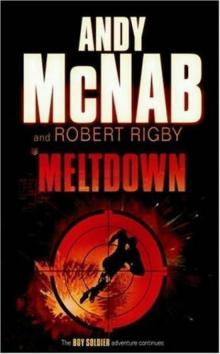 Meltdown bs-4
Meltdown bs-4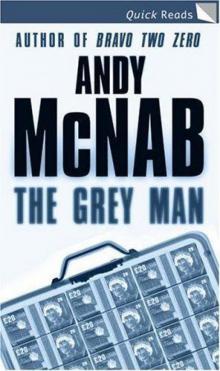 The Grey Man (quick reads)
The Grey Man (quick reads)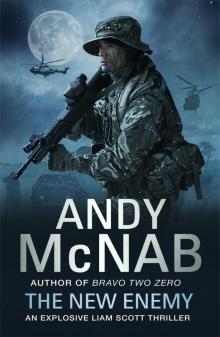 The New Enemy
The New Enemy Avenger
Avenger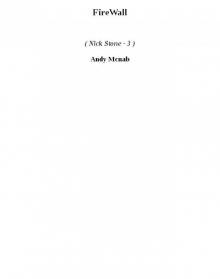 FireWall ns-3
FireWall ns-3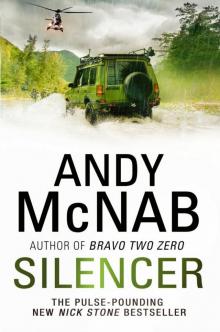 Silencer
Silencer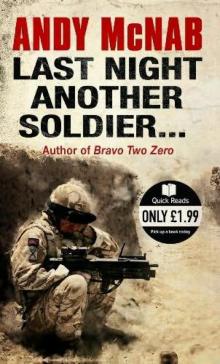 Last Night-Another Soldier…
Last Night-Another Soldier…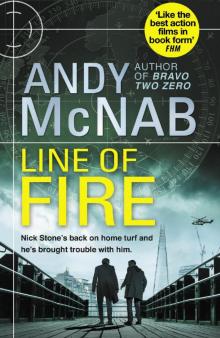 Line of Fire:
Line of Fire: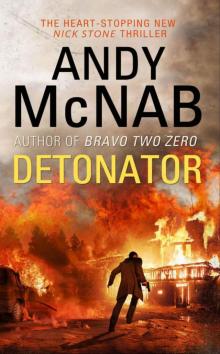 Detonator
Detonator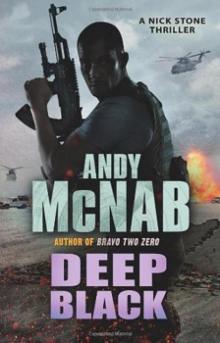 Deep Black ns-7
Deep Black ns-7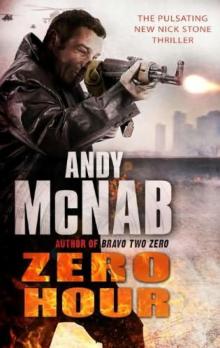 Zero Hour (2010) ns-13
Zero Hour (2010) ns-13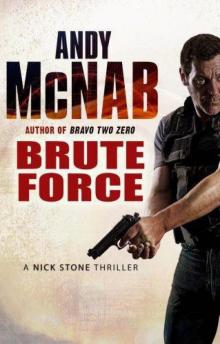 Brute Force ns-11
Brute Force ns-11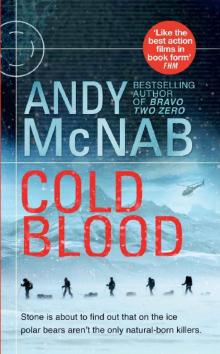 Cold Blood
Cold Blood Terminal Velocity
Terminal Velocity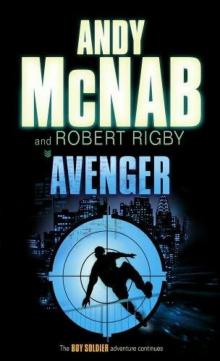 Avenger bs-3
Avenger bs-3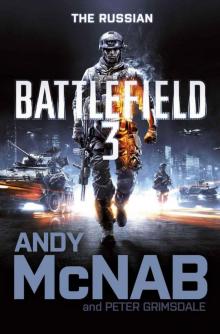 Battlefield 3: The Russian
Battlefield 3: The Russian DropZone
DropZone Zero Hour
Zero Hour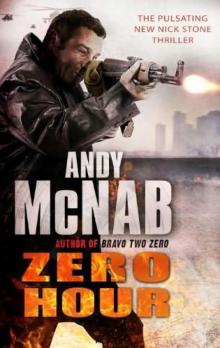 NS13 Zero Hour (2010)
NS13 Zero Hour (2010)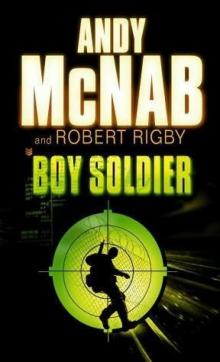 Boy soldier bs-1
Boy soldier bs-1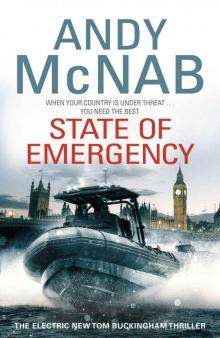 State Of Emergency: (Tom Buckingham Thriller 3)
State Of Emergency: (Tom Buckingham Thriller 3)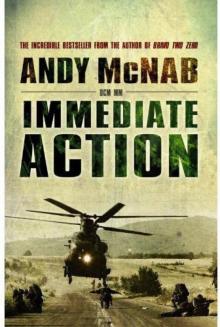 Immediate Action
Immediate Action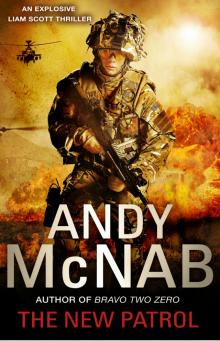 The New Patrol
The New Patrol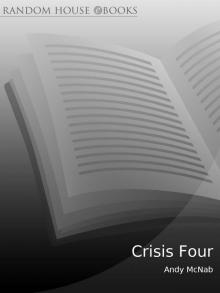 Crisis Four
Crisis Four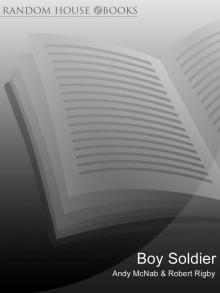 Boy Soldier
Boy Soldier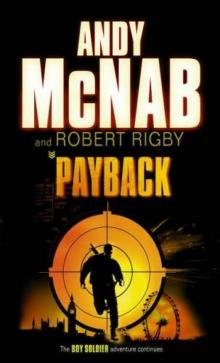 Payback bs-2
Payback bs-2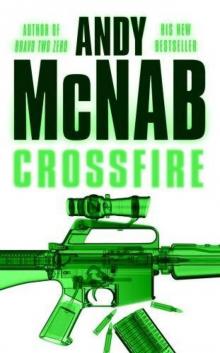 Crossfire ns-10
Crossfire ns-10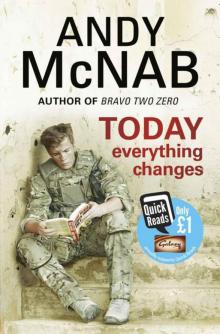 Today Everything Changes: Quick Read
Today Everything Changes: Quick Read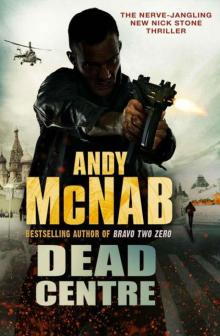 Dead Centre
Dead Centre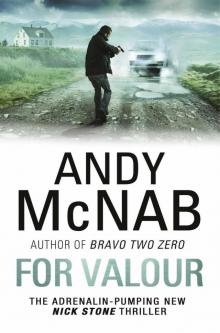 For Valour
For Valour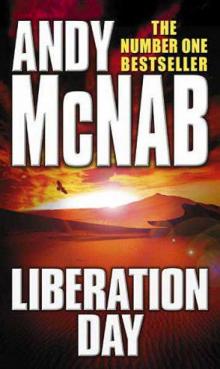 Liberation Day ns-5
Liberation Day ns-5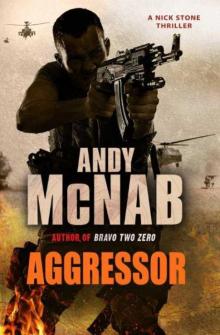 Aggressor ns-8
Aggressor ns-8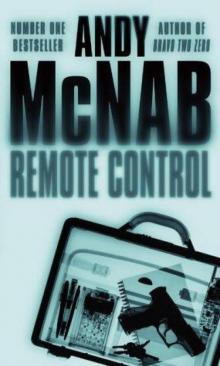 Remote Control ns-1
Remote Control ns-1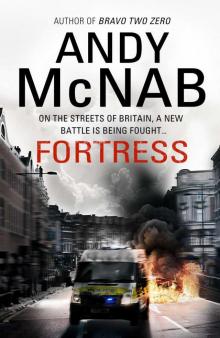 Fortress
Fortress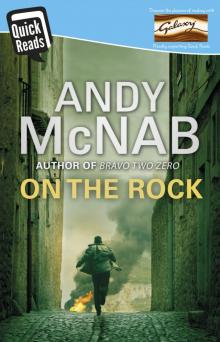 On the Rock
On the Rock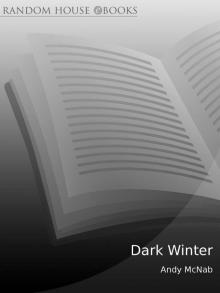 Dark Winter
Dark Winter